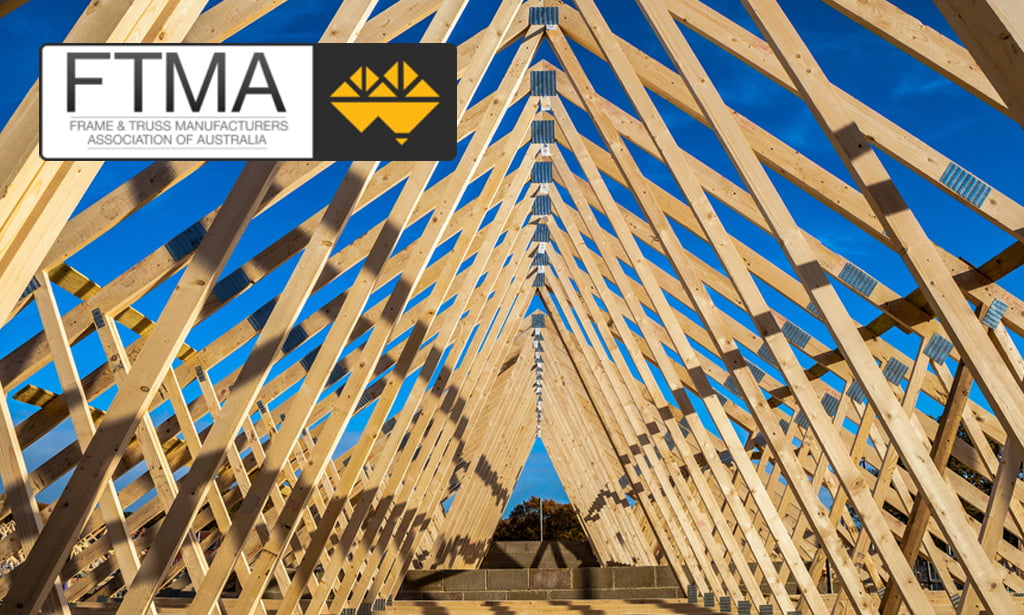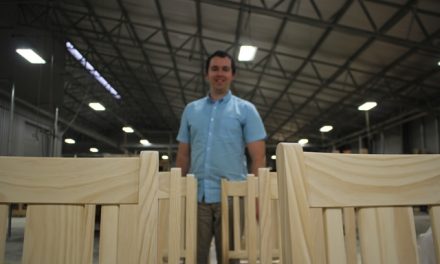When writing this article, and being blessed with the ability to see into the future, I can inform you that by now the 2015 FTMA Australia National Conference will be winding up and everyone had a fantastic time.
By this stage, 140 delegates enjoyed fabulous networking, informative presentations; and, of course, fun with laser clay shooting, Segways, golf and great entertainment from outstanding comedians.
This year’s conference also introduced the new Recognition of Service to Industry Awards, which were presented to two worthy recipients. I will leave that to when I write June’s FTMA newsletter to share these stories and photos.
FTMA Board Member and Director of MB Prefab Framing Pty Ltd, Clive Martella, presented on the important issue of detailers’ and estimators’ skill levels.
It’s been four years since new National qualifications were introduced for the frame and truss industry – Certificates (Cert) III and IV for Timber Truss and Frame Design, and Manufacture. For the first time, we had specific qualifications for our industry and, importantly, these covered estimators and detailers.
The Cert III is suitable for estimators and basic-level designers, while the Cert IV is targeted at designers. However, has the industry used this as a tool to set appropriate salaries for these tasks?
Under the CFMEU Award, the definition of an estimator is stated as the following:
4.8 – “An estimator means an employee who has served an apprenticeship to any of the building trades or a draftsperson who is engaged in preparing cutting lists of timber for use in the manufacture of building components from builders, architects, or other plans.”
There is no mention of a detailer.
Clive’s presentation explored ways to measure the skill levels of detailers and estimators, which can be used as a guide to determine where they sit in relation to others doing the same work.
Without set levels and targets, also known as key performance indicators (KPIs), it is hard to determine whether you are paying enough, whether you are paying too much, or whether the industry as a whole is out of touch with the real world, reflected by the way they ascertain the value, especially for that of a detailer.
Clive made it clear that this is not about ‘bagging’ detailers. Setting consistent expectations for these roles is about raising the standards of our industry, providing a clear set of guidelines, as well as creating real pathways and benchmarks that detailers can strive towards.
WHAT IS THE DIFFERENCE BETWEEN THE FACTORY AND THE OFFICE?
Clive argued that detailers working in the office are just as important as the team working on the factory floor. In this industry, we do not get paid for our product until it is completed and delivered. We rely on the factory not only to produce our product, but to produce it correctly and in an efficient manner.
The more efficient the factory team is at their job, the higher the production and the higher the profitability. Reflecting this critical role, the factory team have defined levels and productivity controls, KPIs and minimum pay rate levels. Why should the detailers and estimators be any different?
In his presentation, Clive outlined seven levels of competency, including descriptions of what is required to meet each level and advance to the next.
Now we have national qualifications, can’t we link it to a relevant salary with KPIs and a career path for all detailers and estimators?
In conclusion, Clive explained that he believes our industry is lacking this link. He firmly believes this is not something that is to be left up to others – who do not have the same excellent knowledge of our industry – to introduce.
Fabricators have to be the ones to stand up and take the step forward. Clive believes this will benefit not only the employer and the employee, but will also protect both parties.
FORESTWORKS CONFERENCE AND GALA INDUSTRY DINNER
I have attended all seven of the annual ForestWorks Conferences over the years, as this is the only event that brings all sectors of the timber industry together.
It is paramount that the supply chain is in attendance and that all sectors work together, because none of us exists without the other. However, I was shocked at some of the language used in some presentations and speeches on the future of the forest and fibre industry; wood products were barely mentioned.
Where does that leave the wood products industry? Are we no longer part of the industry or are fabricators now providing fibre frames and trusses?
As a supply chain it is vital that we all work together. No sector is more important than the other and language is important in defining this. The ‘name of our industry’ should not be left up to one sector. Anyone that thinks of our industry as the ‘fibre’ industry doesn’t have the best interest of fabricators in mind. The FTMA looks forward to the industry re-linking the chain and moving forward together.
With the exception of the above comments, the conference and gala dinner was fantastic with the Prime Minister, the Honourable Tony Abbott, once again addressing a large contingency of the timber industry.
Congratulations to ForestWorks on a great job!Keep your eyes peeled for all of your FTMA 2015 National Conference coverage in the June edition of TimberTrader News!
For more information contact Kersten Gentle on 0418 226 242.











